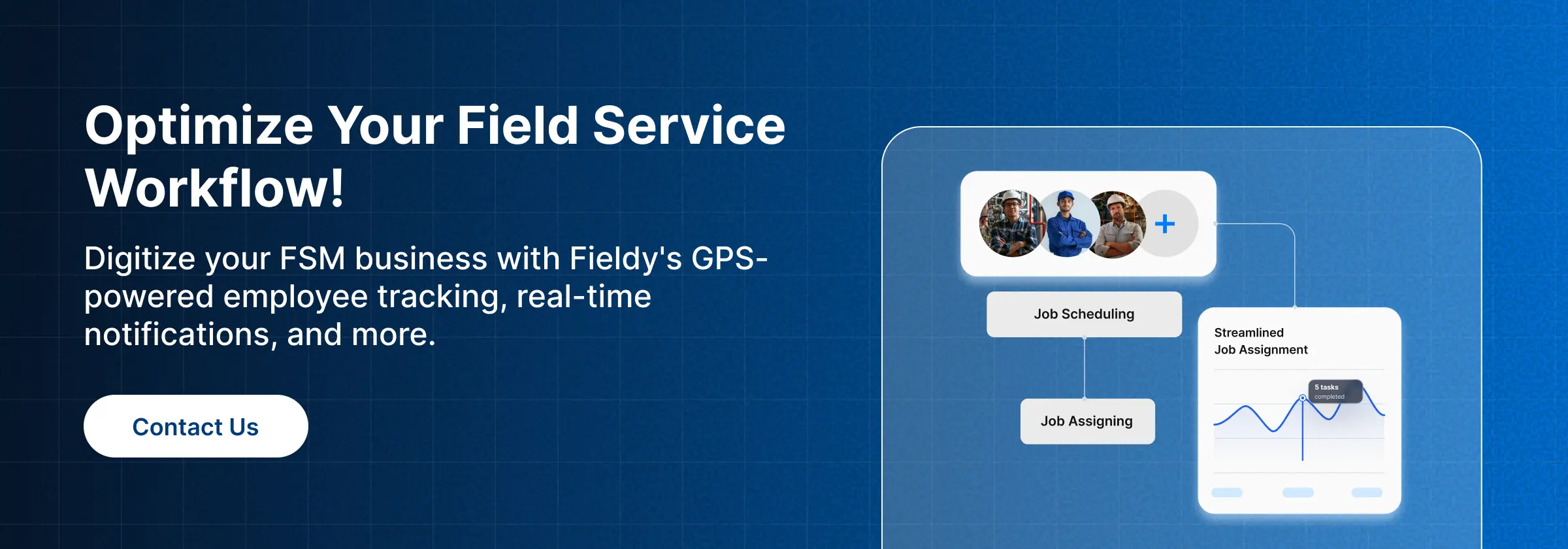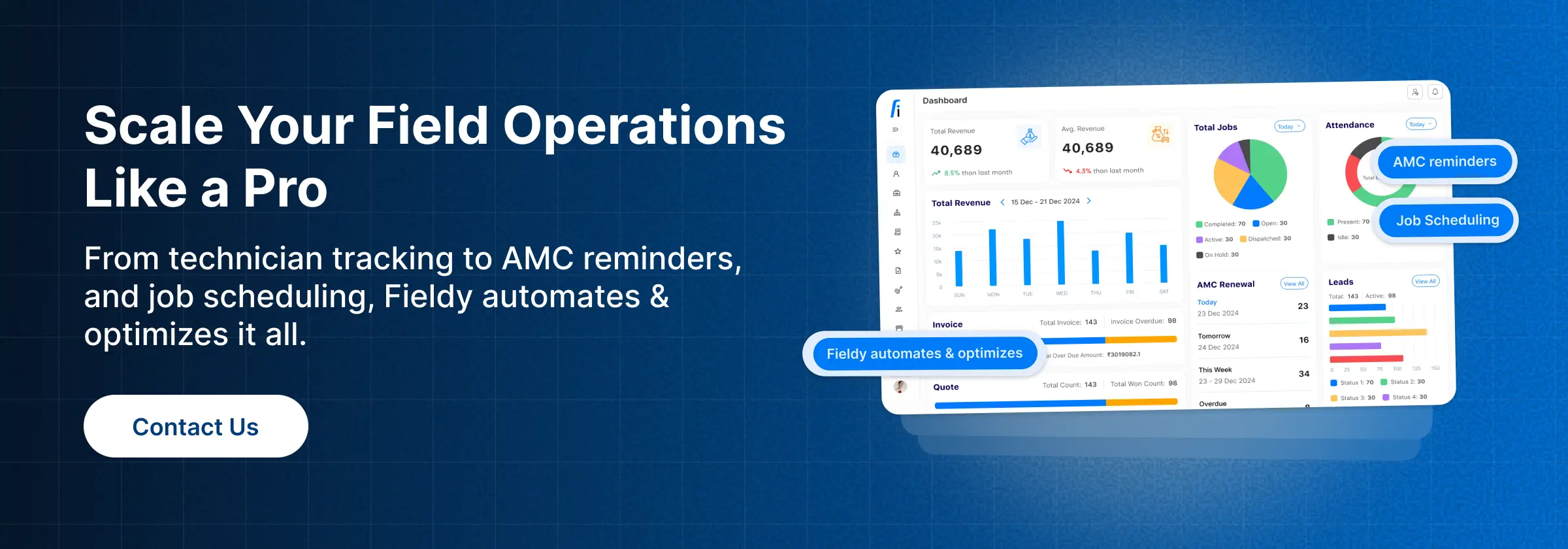In the wildly fast-paced field-service industry, efficiency cannot be separated from customer trust. From HVAC operations to pest control, logistics, or utilities, GPS fleet tracking is claimed to be one of the pillars in contemporary operations. Managers are hence given real-time placement of technicians, downtime is minimized with the help of route optimization, and the teams become more accountable.
With the advent of digitalization came concerns of privacy and cyber-attacks. The GPS and operational data that lend efficiency to the businesses are also highly sensitive. If these data leak out, the businesses face losing customer trust, violating employee safety laws, and compliance issues.
As the GPS tracking market itself is undergoing a boom, the global market of GPS tracking devices is expected to touch $5.7 billion by 2028, meanwhile the GPS and asset-tracking-related hardware market stands at $33.5 billion worldwide in 2025, the importance of securing this data comes to the fore along with its operational benefits. Therefore, it is not optional but mission-critical to learn how to secure data with GPS fleet tracking systems in field service management.
🛡️ Why Data Security Matters in FSM GPS Tracking
👥 Customer Data Sensitivity
Field service businesses manage customer addresses, service histories, and invoices every day. When paired with GPS data, this forms a highly valuable, and vulnerable, dataset. If mishandled, customers risk identity theft or fraud, while businesses risk reputational loss.
In fact, 42% of organizations using GPS fleet tracking reported improved routing, 46% saw increased productivity, and 48% experienced enhanced security. These benefits only highlight the importance of balancing performance gains with strong data protection.
🧑🔧 Technician Safety
GPS data is not just about efficiency; it also reveals where technicians are in real time. If this information falls into the wrong hands, employees could face physical safety risks. Businesses using an employee GPS tracking app must enforce strict access protocols to protect their workforce.
A U.S. trucking company provides a telling example: by implementing geofencing and behavior analytics, it prevented unauthorized vehicle use and improved driver safety. This not only reduced accidents but also improved delivery punctuality, showing how security and productivity often go hand in hand.
⚖️ Business Compliance
FSM providers serve industries where compliance isn’t optional. From GDPR in Europe to HIPAA in healthcare and SOC2 (Service Organization Control 2) in SaaS, failing to protect sensitive GPS and operational data could trigger fines or even license suspensions. Gartner reports that by 2026, 75% of organizations will face penalties for non-compliance if they do not update data privacy frameworks.
For example, a European car rental firm using real-time vehicle tracking achieved better compliance by minimizing misuse, recovering stolen assets, and cutting maintenance costs. The result was not only legal security but also a significant boost in profitability.
💰 Financial Risks
A single data breach can cripple a service company. Beyond fines and lawsuits, downtime and customer churn can drive heavy losses. Deloitte notes that 43% of small businesses close within six months of a cyberattack, a risk FSM providers cannot afford to ignore.
🔒 Challenges in Ensuring Data Security with GPS Fleet Tracking Systems
Even though the benefits of GPS tracking are clear, many organizations still struggle to implement and maintain the right level of security. Some common challenges include:
| 🚧 Challenge | 📋 Explanation |
|---|---|
| ⚖️ Balancing Security with Usability |
|
| 🛡️ Rising Cyber Threat Sophistication |
|
| 🔗 Integration with Legacy Systems |
|
| 👤 Insider Misuse and Human Error |
|
| 💰 Cost of Advanced Security |
|
| 📜 Keeping Up with Compliance |
|
🔑 Key Data Security Challenges with GPS Fleet Tracking
🔓Unauthorized Access
If login credentials are weak or shared among employees, unauthorized individuals could gain access to live technician locations and business workflows. This jeopardizes not only data privacy but also operational safety.
A port operator in Asia experienced this firsthand. Before upgrading its system, unauthorized access led to delayed cargo monitoring. After securing its fleet tracking solution with automated route-deviation alerts, the company improved traffic management and compliance simultaneously. ⬇️
📱Weak Mobile App Security
Most technicians rely on mobile FSM apps in the field. However, devices without multi-factor authentication or biometric logins expose GPS and customer data to theft. For example, a pest control company in Texas reported a breach where unsecured apps revealed thousands of client addresses, highlighting the risks of poorly secured real-time field staff tracking apps.
Industry-wide, the shift to cloud-based GPS tracking solutions is increasing reliance on secure mobile tools. These platforms offer scalability and real-time data sharing but also demand stronger cybersecurity protocols to prevent vulnerabilities.
💾Data Loss
Cloud outages and poor backup practices often result in lost records. Without redundancy and recovery planning, companies risk losing compliance-related GPS logs and job histories.
Insights from the fleet industry show that regular cloud-based backups with encryption and tamper-proof hardware are now becoming standard practice to safeguard against such risks.
🕵️♂️Insider Threats
Not all risks come from outside. An employee with excessive access could misuse GPS data for personal gain or even leak it to competitors. Strict role-based access controls are key to limiting insider misuse.
🛡️ Common Mistakes Businesses Make in GPS Data Security
While many organizations understand the importance of securing GPS fleet tracking data, execution often falls short. Avoiding these common mistakes can make the difference between a secure system and one vulnerable to attack.
| 💡 Solution / Best Practice | 📋 Explanation |
|---|---|
| ⚙️ Customize Vendor Settings |
|
| 👨🏫 Regular Employee Training |
|
| 📱 Implement Mobile Device Management (MDM) |
|
| 🔍 Perform Third-Party Security Audits |
|
🔒 Best Practices for Data Security in GPS Fleet Tracking
🔐End-to-End Encryption
Data must be encrypted both in transit and at rest. Techniques like AES-256 encryption ensure that intercepted GPS or customer data remains unreadable. FSM businesses using field service scheduling software should confirm encryption is standard across all modules.
🛡️Role-Based Access Control
With RBAC, only authorized roles access sensitive data. Technicians see job details relevant to their tasks, while managers and admins retain broader control. This prevents overexposure and reduces misuse.
📲Secure Mobile FSM Apps
Technicians on the move need secure mobile access. Best practices include:
-
Biometric authentication 👆
-
Multi-factor authentication (MFA) ✅
-
Auto-logout features ⏱️
-
Regular security updates 🔄
This is particularly important for companies relying on AMC management software, where long-term contracts and recurring visits require constant data protection.
☁️ Cloud Storage & Backup
Secure, compliant cloud services ensure real-time access while safeguarding data. Features like geo-redundancy and automated backups protect against data loss. Using field service CRM software with secure hosting helps centralize and protect sensitive data.
🚨 Real-Time Alerts & Monitoring
AI-driven tools monitor unusual access attempts or vehicle deviations. Alerts can detect anomalies such as after-hours logins or unauthorized GPS access, allowing quick intervention.
Industry experts highlight the role of AI and blockchain in strengthening these safeguards. While AI detects abnormal access patterns, blockchain enhances transparency by making data tamper-resistant. Companies using employee productivity tracking software benefit from these integrations, improving both efficiency and security.
📜 Compliance with Data Protection Laws
Businesses should configure FSM systems to align with GDPR, HIPAA, and SOC2 requirements. Practices like storing only essential customer data, documenting consent for location tracking, and maintaining audit logs make compliance seamless.
🖥️ How FSM Software Supports Secure GPS Fleet Tracking
🗓️ Secure Scheduling & Dispatching
FSM platforms restrict sensitive job details to authorized staff, ensuring scheduling remains both efficient and secure.
📊 Audit Trails for Accountability
Audit logs document who accessed GPS or customer records and when. This discourages misuse and provides evidence during compliance checks.
🔒 Encrypted Mobile Apps
Modern FSM apps are designed with end-to-end encryption and secure offline access to protect data, even when technicians are working in low-connectivity zones.
💰 Financial Integrations with Security
When FSM software or HVAC software integrates with accounting tools like QuickBooks, sensitive billing and payroll data must remain secure.
For HVAC businesses, following a HVAC scheduling & dispatching QuickBooks guide helps ensure smooth financial operations without compromising security. ⬇️
🚀 Future Trends in GPS Data Security
As field service management evolves, so do the cyber threats linked to GPS fleet tracking. To stay secure, businesses must prepare for emerging technologies shaping the future.
- 🔗 Blockchain for Data Transparency
Blockchain creates tamper-proof GPS logs, ensuring no unauthorized edits or deletions. This boosts trust and compliance, especially in regulated sectors like healthcare and finance. - 🤖 AI-Driven Anomaly Detection
AI can flag unusual GPS patterns, like off-route vehicles or repeated failed logins, triggering real-time alerts. This proactive defense reduces fraud and speeds up response to threats. - 📡 5G Integration for Secure Communication
5G enables low-latency, high-speed GPS updates while offering stronger built-in encryption. For FSM, this means real-time efficiency with enhanced cybersecurity.
🚀 Conclusion
Data security is no longer just an IT concern; it’s a business imperative. For FSM companies, mastering how to Ensure Data Security with GPS Fleet Tracking Systems is essential to protecting customer trust, ensuring technician safety, and maintaining compliance.
By combining end-to-end encryption, RBAC, secure mobile apps, cloud backups, real-time monitoring, and compliance frameworks, organizations can confidently deploy GPS tracking solutions while minimizing risk.
Secure field service management software doesn’t just protect data; it builds resilience and credibility in an industry where trust drives long-term success.
❓FAQs – Data Security in GPS Fleet Tracking
Why is data security important in GPS fleet tracking?
Because these systems handle sensitive customer, employee, and financial data that, if breached, could result in identity theft, compliance violations, and financial loss.
What are the most common threats to GPS tracking systems?
Unauthorized access, weak mobile security, insider misuse, ransomware, and cloud outages.
How can businesses secure mobile FSM apps?
By adopting biometric logins, MFA, auto-logout features, and regular security updates to patch vulnerabilities.
Does compliance like GDPR and HIPAA apply to FSM?
Yes. Businesses handling personal or healthcare-related data must comply with GDPR, HIPAA, SOC2, and other relevant laws.
How does FSM software strengthen GPS fleet security?
It offers encryption, RBAC, secure integrations, audit trails, and compliance-ready configurations, reducing risks significantly.


